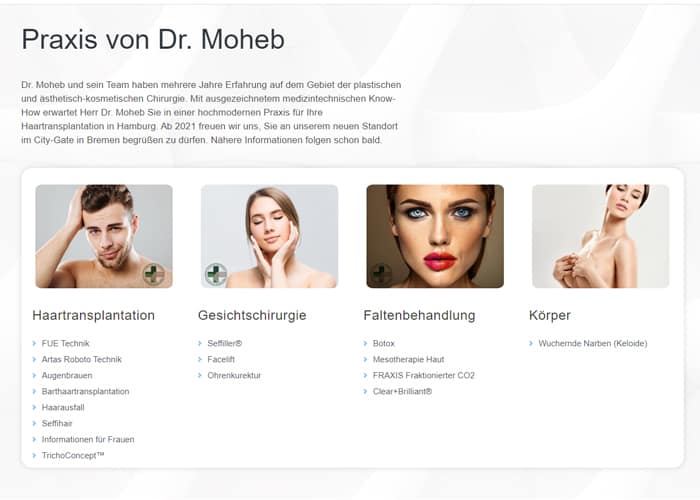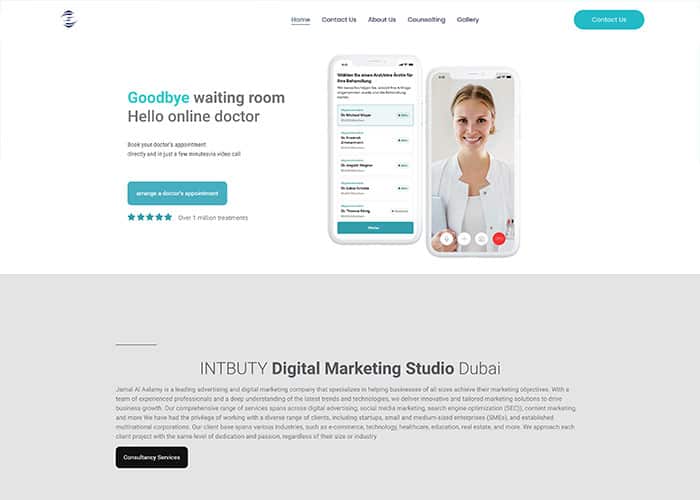Web Design in Germany Individuellen WordPress Themes bilden die Basis für eine erfolgreiche Suchmaschinenoptimierung (SEO) und den Ausbau Ihrer Rankings in den Suchergebnisseiten von Google …
Individuellen WordPress Themes bilden die Basis für eine erfolgreiche Suchmaschinenoptimierung (SEO) und den Ausbau Ihrer Rankings in den Suchergebnisseiten von Google und Co. Ein technisch einwandfreies Setup und sauber strukturierter HTML-Quellcode sowie eine gute Website-Geschwindgkeit sind relevante Faktoren für die On-Page Suchmaschinenoptimierung. Nutzen Sie diesen Vorteil und das Potenzial von WordPress für die Optimierung Ihrer Inhalte und Suchmaschinen-Rankings.
-
- WordPress Entwickler
- Google Ads Management (SEA)
- WordPress Entwicklung
- Adobe Premier und Adobe Aftereffect
- SEO

Some of my Webdesign in World of Network

www.moheb.hamburg
Erfan Amiri web Designer in Deutschland
Current State of Web Design in Germany
Fast-forward to the present day, web design in Germany exhibits a melange of efficiency, minimalist aesthetics, and state-of-the-art technology, a mirror reflecting the nation’s Zeitgeist. Websites are now viewed as digital storefronts, embodying the essence of the brands they represent while maintaining a distinctly German appeal.

www.intbuty.com
The current trend in German web design is a balance of functionality and aesthetics. It’s not uncommon to find websites sporting clean lines, monochromatic palettes, and a focus on typography, resonating with the country’s world-renowned Bauhaus design principles. These sites are not only visually pleasing but are built with meticulous attention to user experience.
A prominent example of German web design is the BMW website. It combines high-quality images with sleek, minimalist design, embodying the ethos of the brand. The interface is intuitive, and the site architecture is meticulously designed to guide users effortlessly to the information they seek.
Another hallmark of German web design is the integration of cutting-edge technology, like augmented reality (AR) and virtual reality (VR). The website of ZEISS, a leading optical company, utilizes VR to offer immersive product experiences, a testament to German ingenuity in merging technology with design.
In essence, the current state of web design in Germany is an innovative blend of the nation’s historical design principles with futuristic tech trends, manifesting in websites that are as compelling as they are user-friendly.
Importance of Web Design for German Businesses
The role of web design in German businesses is comparable to the intricate cogs of a finely tuned clockwork, quietly but indispensably driving the mechanism of growth and visibility. It’s a multilayered symbiosis where form, functionality, and brand identity coalesce, creating a powerful digital tool that can shape a business’s success trajectory.
Web design can be the differentiator that sets a business apart in the competitive online landscape. It aids in creating a compelling first impression, establishing credibility, and enhancing customer engagement. A well-designed website acts as a magnet, drawing in visitors and converting them into loyal customers.
An efficiently designed website can streamline a company’s operations. From capturing leads to facilitating purchases and fostering customer relations, the potential benefits of a well-designed website are myriad. For instance, the use of smart forms can automate data collection, while a well-structured product catalog can ease the shopping process.
Moreover, an intuitively navigable, user-friendly website reduces bounce rates and enhances user engagement, ultimately translating into increased revenue. As such, investing in high-quality web design is not a frivolous expense, but a strategic move that can deliver tangible returns for German businesses.
Impact of Cultural Elements on German Web Design
German culture, renowned for its fusion of tradition and innovation, profoundly influences its web design ethos. This blend is beautifully captured in the websites that cater to the German market, with each element carefully curated to resonate with the cultural sensibilities of the audience.
The German design philosophy, deeply rooted in the Bauhaus principles, reverberates in the web design arena. The marriage of form and function, minimalism, and reverence for typography creates clean, efficient, and exquisitely balanced websites. It’s a distinct style that melds the simplicity of design with the complexity of technology, echoing the German penchant for efficiency and precision.
Furthermore, the German culture of ‘Gründlichkeit’ (thoroughness) translates into an attention to detail that distinguishes German web design. Every element, from the site architecture to the choice of font, is carefully considered to enhance user experience and authentically portray the brand’s identity.
Thus, German web design is not just about creating visually pleasing websites. It’s about creating digital narratives that resonate with the cultural ethos of its audience, crafting an experience that is distinctly German, both in aesthetic and functionality.
SEO in Germany: Its Significance in Web Design
In the grand scheme of the digital universe, Search Engine Optimization (SEO) is like the gravitational pull that positions a website in the galaxy of Google’s search results. In Germany, a nation that embraces both technology and meticulous planning, SEO’s significance in web design cannot be overstated.
SEO is not just a technique; it’s a philosophy that permeates web design, shaping everything from site architecture to content. A website must be easy to crawl for search engines, have quick loading times, and be mobile-friendly. However, beyond technical aspects, SEO also entails creating high-quality, user-oriented content. Keywords must be woven naturally into the textual fabric, and meta-tags must be crafted with precision.
The reward of a well-executed SEO strategy is immense – higher visibility, increased traffic, and improved user engagement. In the crowded digital marketplace of Germany, where every business is vying for attention, SEO can be the game-changer that propels a website from obscurity to prominence.
Case Study: Successful Web Design and SEO Practices in Germany
Let’s delve into the successful symbiosis of web design and SEO through the lens of EDEKA, a leading supermarket chain in Germany. Their website stands as a beacon of effective web design, seamlessly fused with astute SEO practices.
EDEKA’s website is a harmonious blend of aesthetics and functionality. The clean, easy-to-navigate design, bolstered by high-quality images and clear typography, exudes a distinctly German design sensibility. However, underneath this visual appeal lies a solid SEO foundation.
The website structure is designed to be crawler-friendly, with a clear hierarchy and a comprehensive sitemap. Moreover, EDEKA makes excellent use of keywords, integrating them organically into the content. Their product descriptions, blog posts, and even image alt tags are meticulously optimized for SEO.
This strategic synergy of aesthetically pleasing web design and insightful SEO practices has made EDEKA’s website a robust digital platform, demonstrating how German businesses can leverage the twin pillars of design and SEO to bolster their online presence. The success story of EDEKA underlines the crucial role both web design and SEO play in defining a business’s digital identity in Germany.
Conclusion
This journey through the realm of German web design and SEO has unveiled its evolution, its cultural underpinnings, its impact on businesses, and its prospective future. As the digital landscape continues to morph, the importance of adapting and innovating within web design in Germany becomes even more pivotal.
Call/Chat me now: +989212675434 (wtsapp)
www.erfanamiri.com
